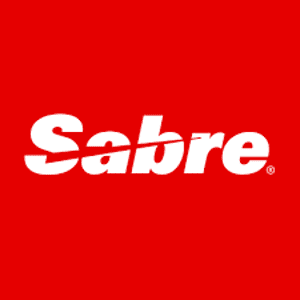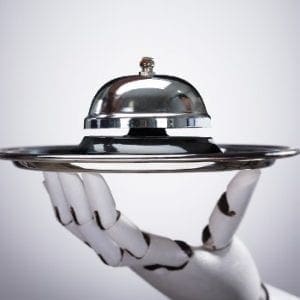 In hospitality, guest experience is everything. Beyond your prices, room quality, and food, it is what ensures guests return to your hotel time and again. And while ecommerce and hospitality are somewhat removed from each other, their delivery of customer experience is two sides of the same coin. Read on to learn why ecommerce should inspire your hospitality customer experience.
In hospitality, guest experience is everything. Beyond your prices, room quality, and food, it is what ensures guests return to your hotel time and again. And while ecommerce and hospitality are somewhat removed from each other, their delivery of customer experience is two sides of the same coin. Read on to learn why ecommerce should inspire your hospitality customer experience.
Automate customer service with AI
The value of customer service is nothing new in the hospitality industry. It’s the crux of positive customer experience, reminding guests that the hotel is there to meet their every need.
But the hospitality industry can take inspiration from ecommerce’s automation of customer service.
AI chatbots like BotXO can resolve a staggering number of complex customer service issues. Complaints, order queries, product information, and more can all be resolved without a customer support team member ever needing to get involved.
Of course, while we’re a few years away from AI-powered receptionists, hotels can still enhance the hospitality customer experience by adding chatbots to their website.
A web-based chatbot can provide prospective guests with up-to-date booking information, advice on local amenities, estimated prices, and so on. This keeps your guests satisfied whilst improving their perception of your brand overall.
Chatbots also harvest customer information such as genders, party type (family, couples, etc), personal preferences, and so on. You can use this to finesse the rest of your customer experience strategy and provide a stellar service based on hard data.
Deliver value through inspiring content
Content is the lifeblood of ecommerce businesses. It strengthens customer-brand relationships by providing interesting or useful content. And this is even beyond the myriad of SEO benefits blogs provide.
Blogs enhance customer experience by providing them with something engaging. It might be a handy guide on summer styles, an interesting infographic on the future of tech and gadgets, or it could just be an entertaining read about pets. Either way, it makes the customer happy and delivers a memorable customer experience.
And hospitality brands too should take advantage of this. A hotel blog informs prospective guests about local attractions, destination ideas, restaurant recommendations, and more.
A strong content marketing strategy transforms your hotel website into a go-to hub for guests to help them research, prepare, and plan their trip. Consequently, you provide an expansive customer experience that caters to all your guests’ needs in a single space.
Embrace simplicity throughout your website
A frequent criticism that holidaymakers have about booking hotels online is that the booking system itself is confusing. Too many options, contradictory choices, an arduous process make for such a taxing experience that the traveler needs another holiday to get over it.
A confusing or demanding checkout is one of the top reasons why customers abandon a process. So in the race for conversions, successful online stores have perfected the checkout process.
The best ecommerce websites are those that provide a streamlined checkout with a simple, linear process and as few choices as possible. Keep your booking process as bare as possible. Where possible, keep the customer on a single page to select their hotel options and enter their financial information.
But beyond the checkout, this user-friendly approach should be reflected throughout your website, delivering strong user experience (UX) at every step of the way. An easy-to-use site with intuitive menus and a minimalist design makes for a strong customer experience that guests will return to time and again.
In essence, the UX principles for ecommerce are the same as the principles for hospitality. Prioritize function over all else and make it customer-centric and intuitive, and you’ll deliver a customer experience that resonates.
Online social interactions spur real-world customer experience
Social media is a core component of strong customer experience. It’s rapid, conversational, and works on platforms where your guests are active most, communicating to your target audience with speed and personality. As such, it is a valuable touchpoint between you and your customers, one that delivers a breadth of benefits for customer experience.
Ecommerce brands use social media for a variety of purposes. Competitions, content sharing, and new product releases are just a few examples of how online stores leverage social. These all play an important role in nurturing customer experience.
But where social media really comes into its own in this aspect is by building a personal rapport between the brand and the customer. Showcasing personality on social and having genuine two-way conversations engages customers with a brand on a deep level, enhancing their perception of said brand as a result.
For those in the hospitality industry, social media has an extra layer to it that transcends that of ecommerce. While the online stores rarely, if ever, meet their customers, hotels will eventually greet their guests.
Consequently, social media serves as a crucial stepping stone towards offline customer experience. The interactions you have with your customers online serve as an incentive to book with you, and form another facet of your brand personality.
Social media is customer service, digitized. Create offline conversations that translate into real-world customer experiences that your guests will remember.
Customer experience is many different things to industries. But inspiration can be found everywhere if you look, and ecommerce is no different. Use the tips above to enhance your hospitality customer experience, and enjoy repeat custom and satisfied guests for time to come.


















